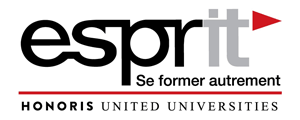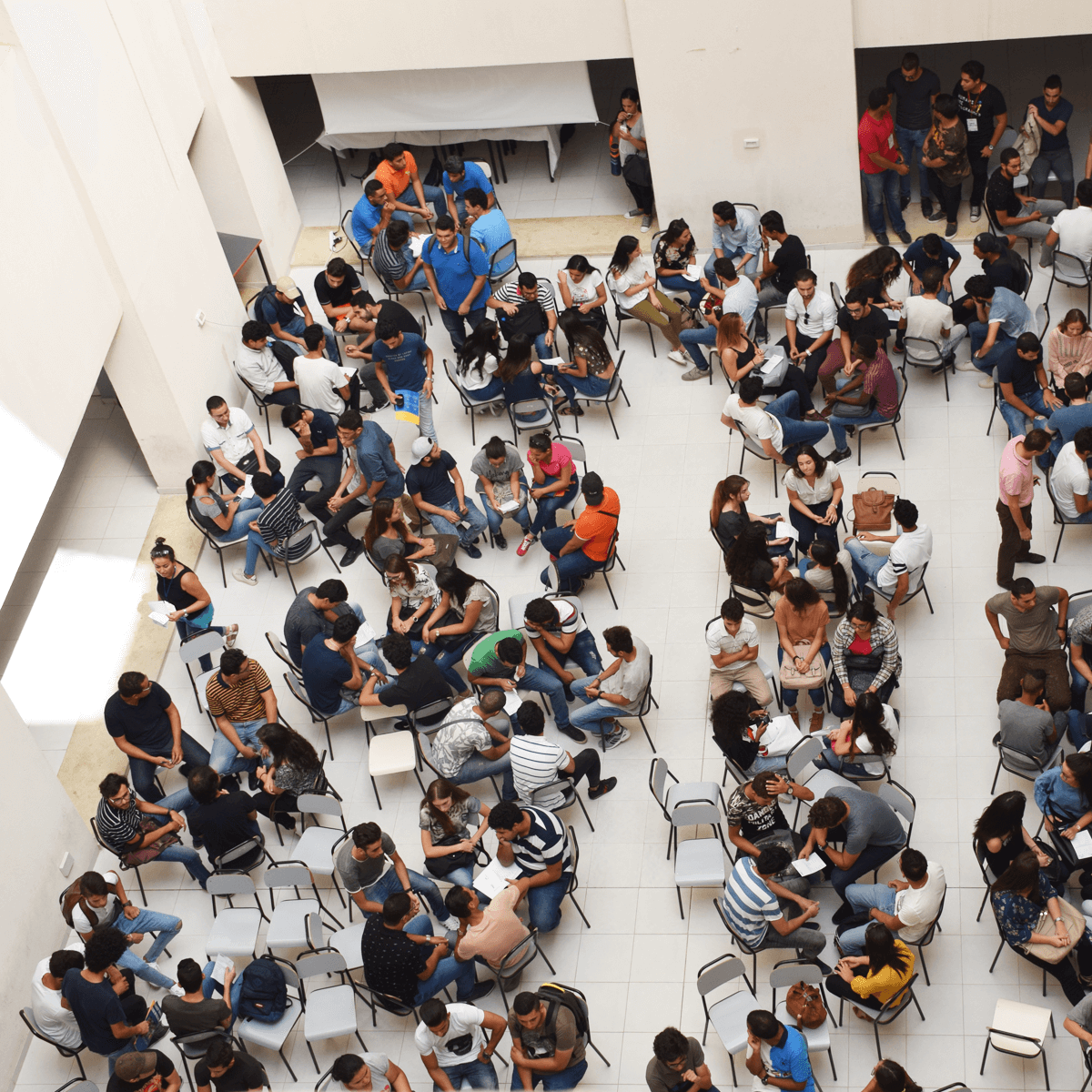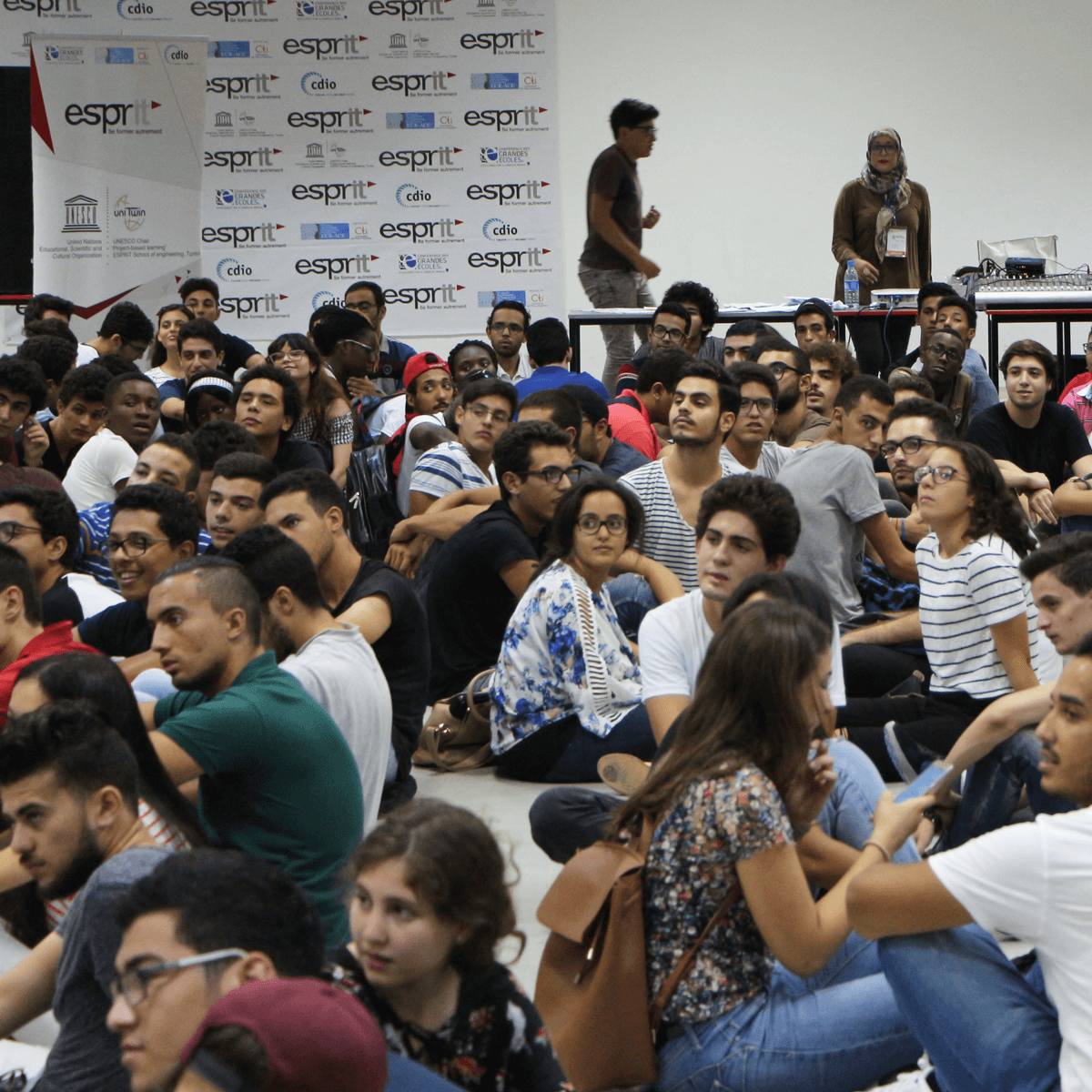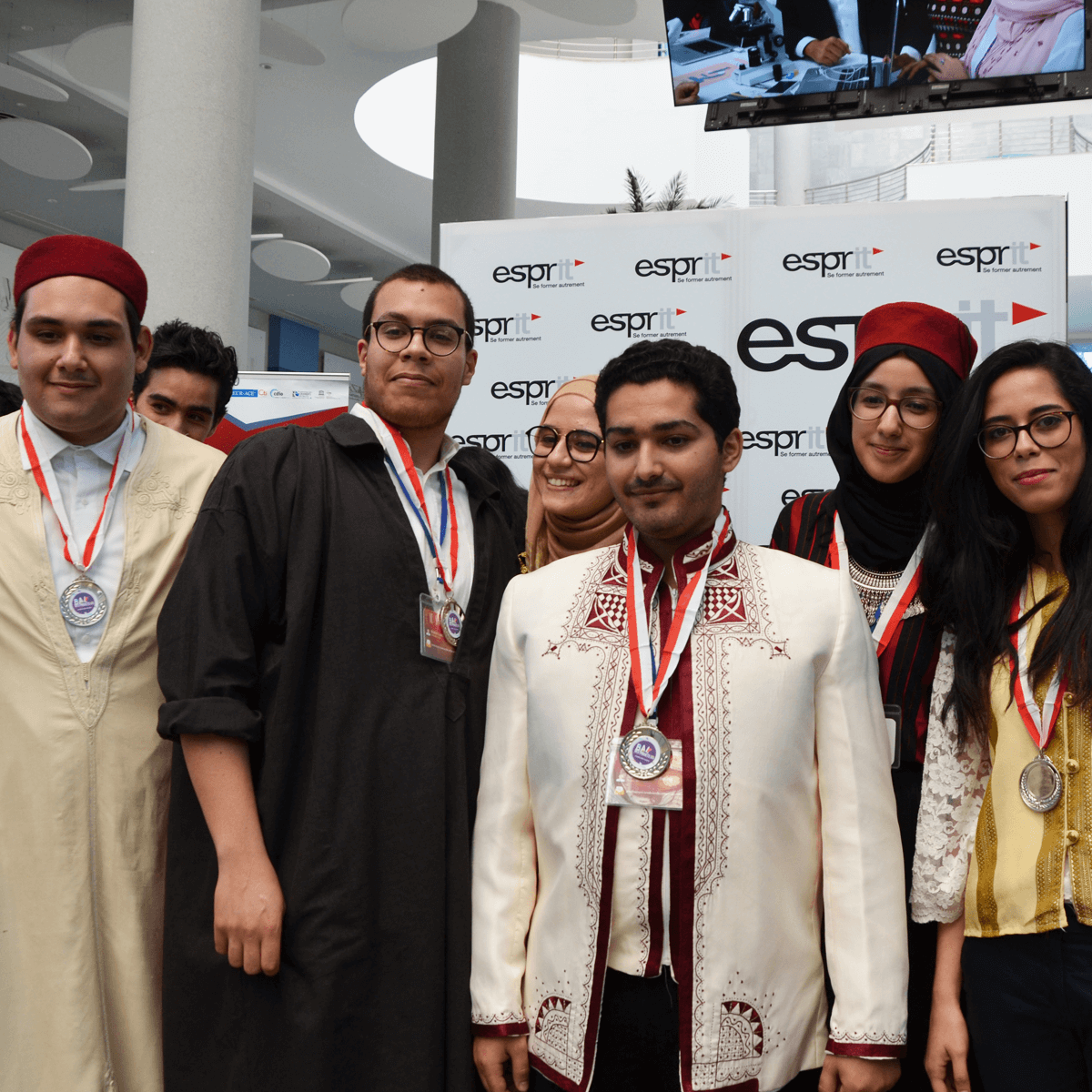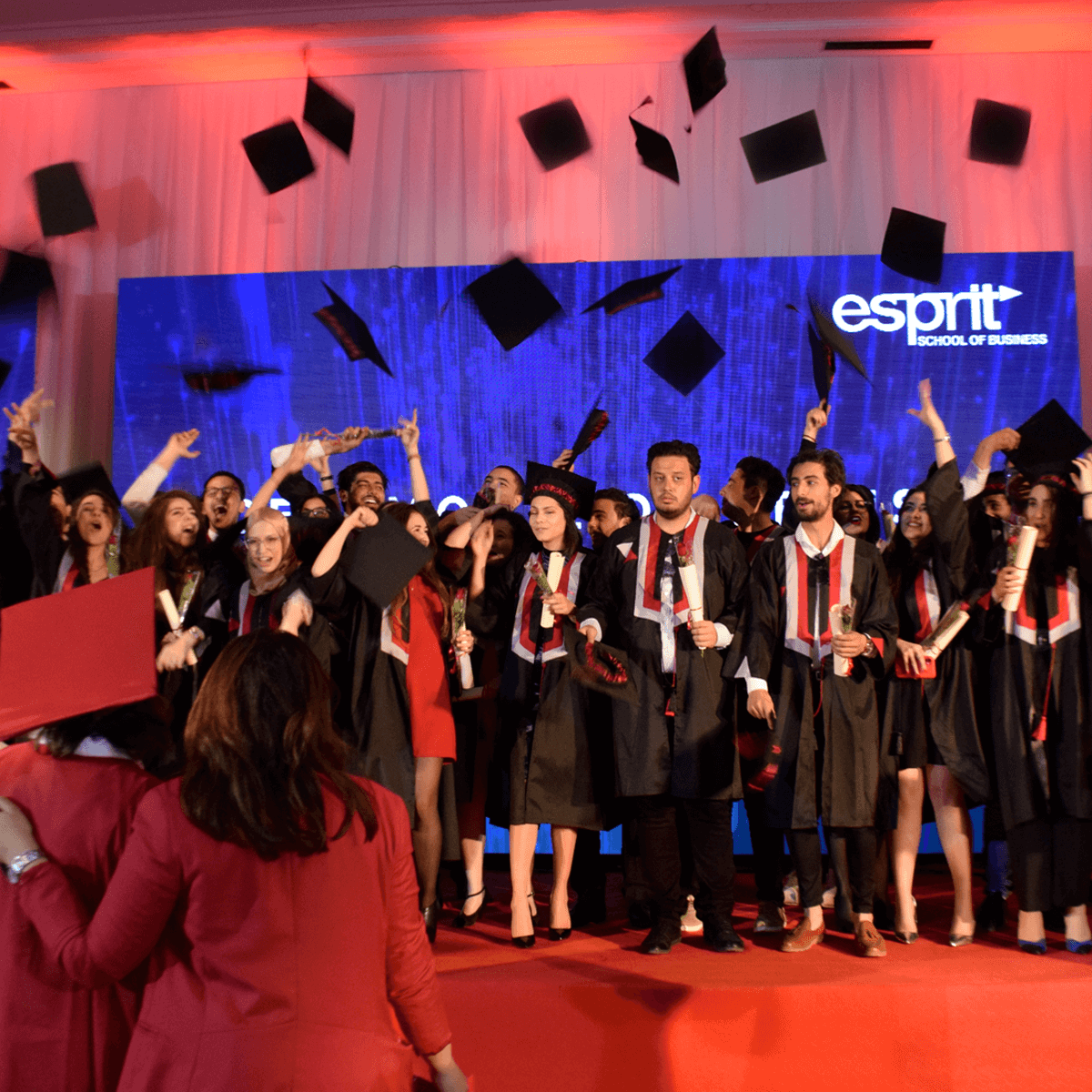The ESPRIT Group is a leading integrated private education platform in Tunisia, built around its flagship Engineering school. In 2003, the ESPRIT School of Engineering (ESE) was launched with two engineering programs and only 45 students. Today, ESE accommodates more than 8500 students across four accredited engineering programs. The flagship school of the ESPRIT Group (that is, ESE) has accredited all its programs with the French accreditation agency “Commission des Titres d’Ingénieur” (CTI) to obtain the EUR-ACE label. >>read more

What does education for impact mean to ESPRIT?
Lamjed Bettaieb, deputy general manager of ESPRIT Group, has a clear answer:“It means, training job-ready engineers and managers without a difficult selection at admission. For our institution, it means providing not only the best education to our students, but also igniting their critical thinking, problem-solving and communication skills. Thus, our graduates can stand out as potential invaluable assets to companies by being job-ready and creative idea generators.”
Student Lifecycle
ESPRIT’s focus is not only on providing high quality qualifications to their students, but also in preparing them for successful endeavours in their chosen careers. In 2009, ESE partnered with the Lycée Sainte-Geneviève (Ginette) in France to introduce ESPRIT Prépa: a program which targets students who wish to sit for their entrance exams to top-tier French and Tunisian engineering schools. In 2015, ESPRIT launched the primary and secondary education segment (K12) from Elementary (Al Kindy) to Middle and High School (Al-Fikr), in order to create a fully integrated educational platform from primary school to higher education.
As such, the student life cycle at ESPRIT exhibits an end-to-end value-chain from the enrollment(even from pre-enrollment) of students to their graduation, strengthened by accelerated digitization, an agile response to student needs, and exemplary innovation. The approach ESPRIT takes towards the student life cycle can be divided into four major components and described as follows:
THE IMPACT ESPRIT OF TUNISIA IS MAKING ACROSS THE 5 PILLARS OF THE HONORIS IMPACT FRAMEWORK
Pillars of Honoris Impact Framework
Esprit Impact
Network: the power of regional and global collaboration through institutions and partnerships and the positive impact.
Learning: quality education and developing world-class African human talent with an entrepreneurial mindset and 21st century skills to thrive in the globally disrupted world of work.
Innovation: education must continuously evolve to meet the challenges of the fast-changing and unpredictable globalized world.
Employability: commitment to enhancing employability of graduates.
Communities: delivering a positive social impact in local communities.
Testimonials
The true measure of success for Honoris, our students and their families, is the affirmation that the high level of individual investment has a meaningful return in transforming the lives of our students and the lives of others. These testimonials are testament of our students’ success:

Mohamed Benali (2018), Engineering Student
"To me Alternative learning is more than a tagline. I came to realize that during my studies at Esprit, thanks to the innovative PBL Approach, the adequate environment and especially the guidance of all faculty members. Upon joining the MINOS research unit, I have designed an open-source cyber security tool called ‘CyberScan toolkit’ currently used by numerous companies, research laboratories and universities the world over. Also, I had the honor to have been named one of the most influential people in Cyber security by «Hakin9» Magazine."
Emna Miladi (2017), Alumni and currently works at SPEI Nucléaire (France)
"To me Alternative learning is more than a tagline. I came to realize that during my studies at Esprit, thanks to the innovative PBL Approach, the adequate environment and especially the guidance of all faculty members. Upon joining the MINOS research unit, I have designed an open-source cyber security tool called ‘CyberScan toolkit’ currently used by numerous companies, research laboratories and universities the world over. Also, I had the honor to have been named one of the most influential people in Cyber security by «Hakin9» Magazine."


Amina Boukhris
"I am so pleased that I am writing this paragraph, as it is a small way to express my gratitude and my pride to be a former student of this marvellous university. In ESPRIT, the acquired knowledge is not limited to IT & Tech related subjects. It’s way more than that. ESPRIT teaches you how to position yourself as a future engineer from the first day you are enrolled. Today I am a manager of a big team in a multinational company, and I would never have reached this step without the great values I’ve learned during my years of study.
>>read more


